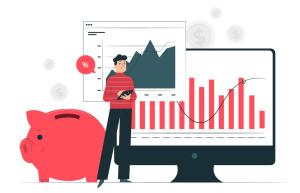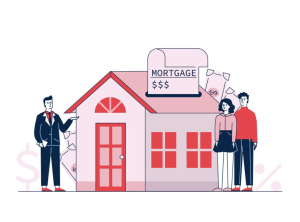Recent findings from a survey conducted by credit management company Lowell have shed light on the financial challenges faced by Generation Z adults in the UK. The survey reveals that, on average, British Gen Z individuals carry a debt burden of £5,069, with a staggering 13% of respondents reporting debts exceeding £10,000. Moreover, a significant portion of Gen Z individuals (61%) acknowledge that the financial decisions they made in their youth are already impacting their future aspirations.
The study highlights that credit card debt is the primary concern for nearly half (48%) of Gen Z respondents, followed closely by buy-now-pay-later arrangements, which account for 19% of their debt burden. Additionally, requests for debt repayment breaks have surged by 25% this year, indicating the financial strain experienced by many in this demographic.
John Pears, UK CEO of Lowell UK, emphasized the importance of financial literacy among young people, noting that many have not received adequate education to manage their finances effectively. Debt Awareness Week serves as a crucial reminder for individuals to recognize the signs of problem debt and seek support when needed. Pears emphasized that addressing financial challenges requires taking proactive steps and seeking assistance when necessary.
As Gen Z individuals navigate their financial journeys, it is essential for them to stay informed about debt management strategies and seek guidance from reputable sources. By fostering financial awareness and seeking support, individuals can take control of their finances and work towards a more secure financial future.
Debt Advice Services: There are several debt advice organizations in the UK, such as StepChange Debt Charity, Citizens Advice, and National Debtline, which offer free and impartial advice on managing debt. These organizations can provide personalized debt solutions tailored to individual circumstances.
Financial Education Programs: Taking advantage of financial education programs can help Gen Z individuals develop essential money management skills. Many organizations offer workshops, webinars, and online resources aimed at improving financial literacy.
Debt Repayment Plans: Setting up a debt repayment plan can help individuals organize their finances and pay off debts gradually. Debt management plans, debt consolidation loans, and informal repayment arrangements are some options to explore.
Government Support: Depending on their situation, individuals may be eligible for government support schemes designed to assist with debt repayment. These include Debt Relief Orders (DROs), Individual Voluntary Arrangements (IVAs), and the Breathing Space scheme.
Financial Counselling Services: Seeking guidance from financial counselors or advisors can provide valuable insights into managing debt and planning for the future. These professionals can offer personalized advice and support tailored to individual goals and circumstances.
Peer Support Groups: Joining peer support groups or online communities focused on debt management can provide encouragement, practical tips, and emotional support. Sharing experiences with others facing similar challenges can help individuals feel less isolated and more empowered to tackle their debt.
By exploring these avenues for support and assistance, Gen Z individuals can take proactive steps towards improving their financial well-being and overcoming debt challenges. It’s essential to reach out for help early and take advantage of available resources to navigate financial difficulties effectively.






